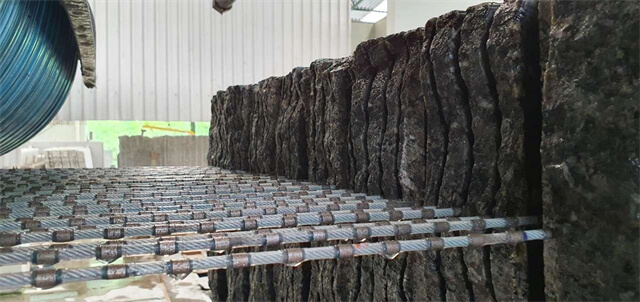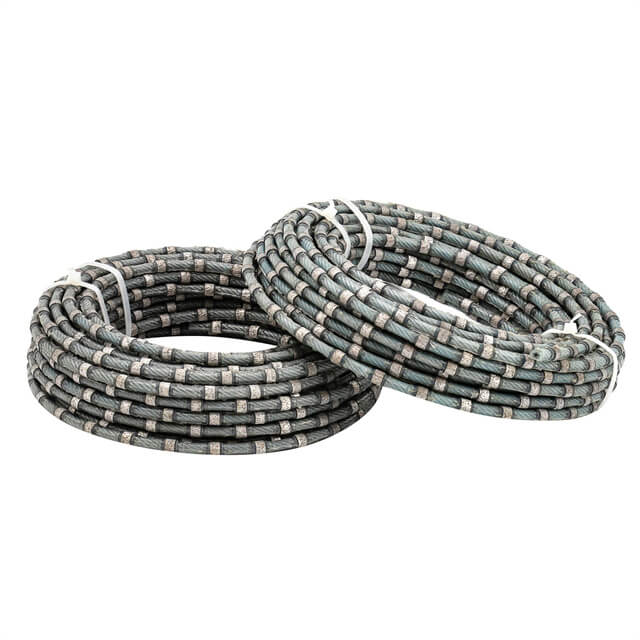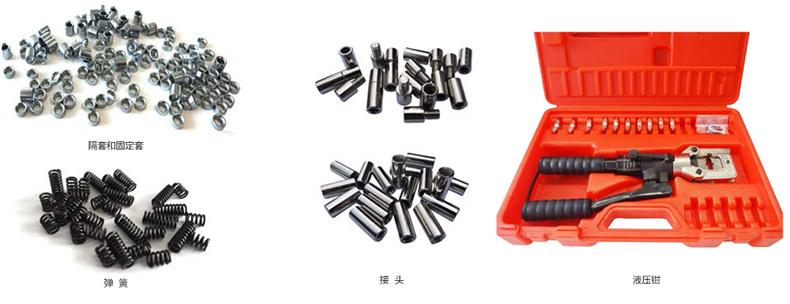Author:Huada Quarrying Machine FROM:Stone quarry machine manufacturer TIME:2024-11-17
Installing diamond wire on a cutting machine is a crucial process that ensures efficient and precise cutting, especially in industries such as stone quarrying, concrete processing, and glass manufacturing. Diamond wire saws have gained popularity due to their ability to cut through hard materials with minimal wastage and greater accuracy compared to traditional methods. This article will guide you through the step-by-step process of installing diamond wire on a cutting machine, highlighting important considerations and safety measures.

Before diving into the installation process, it’s essential to understand what a diamond wire saw system entails. A diamond wire saw consists of a wire with diamond segments attached at intervals, which allows for effective cutting. The wire is usually looped around two pulleys and driven by a motor. These systems can vary in design, but the core principles of operation remain consistent across different models. Familiarizing yourself with the components will help streamline the installation process.
Proper preparation is key to a successful installation. Before starting, ensure you have all the necessary tools and equipment at hand. Commonly required items include a wrench set, screwdrivers, wire tensioning tools, and safety gear such as gloves and goggles. Additionally, having a replacement diamond wire and maintenance lubricant on standby can prevent delays during the installation process.
Safety should always be a priority when working with cutting machines. Before beginning the installation, make sure the machine is powered off and locked out to prevent accidental start-ups. Wear appropriate personal protective equipment (PPE), including gloves, eye protection, and steel-toed boots. Ensure that your workspace is clean and free from any hazards that could pose risks during installation.
The first step in the installation process is removing the old diamond wire. Begin by loosening the tension on the wire using the tensioning tool. Carefully unthread the wire from the pulleys, making sure to keep track of how it was installed to assist in the new wire installation. After removing the wire, inspect the machine’s components for any signs of wear or damage. This is a good time to perform maintenance, such as cleaning and lubricating the pulleys and bearings.

Once the old wire is removed and the machine cleaned, it’s time to install the new diamond wire. Start by threading one end of the wire through the first pulley, then wrap it around the second pulley. Make sure the wire is oriented correctly, with the diamond sections facing the material to be cut. Follow the original installation pattern you noted earlier to ensure proper alignment. Pay attention to the wire's tension during this process; it should not be too tight or too loose.
After the wire is threaded through the pulleys, the next step is to adjust its tension. Proper tension is critical for effective cutting performance and longevity of the wire. Use a tensioning tool to apply the correct amount of pressure, ensuring that the wire is taut but not overstretched. Check the manufacturer’s guidelines for specific tension recommendations based on the type of wire and machine you are using.
Once the tension is adjusted, secure the wire in place by tightening any clamps or screws that hold it in position. Double-check that the wire is seated correctly in all pulleys and that it is aligned properly to avoid any misalignment during operation. This step is crucial, as any errors can lead to premature wear or even damage to the cutting machine.
After securing the wire, it’s important to conduct a test run before full operation. Power on the machine and observe the wire’s movement closely. Look for any irregularities such as wobbling or unusual noises, which could indicate improper installation. Run the machine at a low speed initially to ensure everything functions smoothly before ramping up to full operational speed.

Proper maintenance is vital for extending the life of both the diamond wire and the cutting machine. Regularly inspect the wire for signs of wear, and maintain appropriate tension during use. Clean the machine periodically to remove debris that may interfere with the cutting process. Additionally, lubricate moving parts as recommended by the manufacturer to ensure optimal performance.
Installing diamond wire on a cutting machine requires careful attention to detail and adherence to safety protocols. By following the steps outlined in this article—understanding the system, gathering necessary tools, ensuring safety, and maintaining the machine—you can achieve a successful installation. Regular maintenance will further enhance cutting efficiency and prolong the lifespan of both the wire and equipment. Ultimately, investing time in proper installation and care will result in better cutting performance and reduced operational costs.